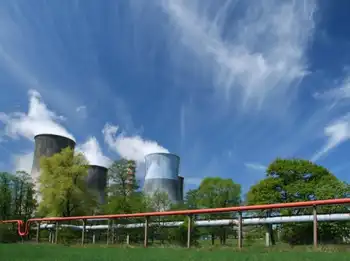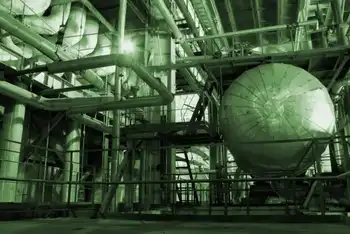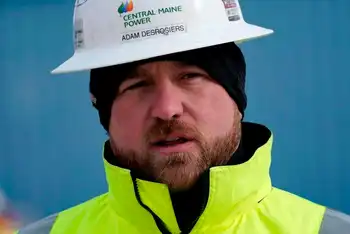U.S. smog batters Ontario
By Toronto Star
Substation Relay Protection Training
Our customized live online or in‑person group training can be delivered to your staff at your location.

- Live Online
- 12 hours Instructor-led
- Group Training Available
The report uses data collected over the last 30 years to find that more than half of Ontario's smog is caused by U.S. sources.
"American sources are major contributors to the pollution that harms our air and health. Every year air pollution entering Ontario from the United States contributes to more than 2,700 premature deaths," said Environment Minister Leona Dombrowsky in releasing the government report.
Airborne pollutants arrive here in prevailing winds from Illinois, Indiana, Kentucky, Michigan, Minnesota, New York, Ohio, Pennsylvania and Tennessee.
The report puts the smog toll from Canadian and U.S. sources at 4,881 premature deaths a year and $9.6 billion in health and environmental costs.
But it focuses on damage from U.S. sources.
"The report also tells us on high smog days more than half of the ground-level ozone pollutants affecting Toronto's air originated in the United States. The numbers were even worse for Windsor where more than 90 per cent of these pollutants came from American sources and in Kingston where the number is over 80 per cent."
Dombrowsky noted "it is clear that Ontario has little control over its own air quality on high smog days" when soot, smog, mercury and other pollutants clog the air.
Ontario, which is being urged by New York to slash pollution from its coal-fired generating plans under provisions of the North American Free Trade Agreement, acknowledges it sends its share of smog stateside.
"This report is not meant to point a finger. Ontario acknowledges its own responsibility for contributing to air problems as well," Dombrowsky said, referring to Ontario's smog that drifts to Quebec, the Maritimes, New York, Vermont and New Hampshire.
"We are taking strong actions to reduce airborne emissions from the three major domestic sources of air pollution: vehicles, power generation and industrial activity."
The report was released one day after the Liberals announced they would break their campaign promise to close Ontario's five coal-fired plants by 2007, leaving the giant Nanticoke station open until early 2009.
Premier Dalton McGuinty said yesterday he is considering legal action against American polluters that fail to clean up their act.
"That might be one of the options we would want to explore," McGuinty said yesterday after the release of the 114-page provincial report. But the premier confirmed for the first time that he would consider joining lawsuits already in progress against big U.S. polluters.
The states of New York, Iowa, California, Connecticut, New Jersey, Rhode Island, Vermont and Wisconsin, and New York City are suing five major companies, including Ohio's American Electric Power, blamed for much of southern Ontario's smog, for "ongoing contributions to a public nuisance."
Before joining such a suit, McGuinty stressed, he first wants to try to persuade U.S. authorities that Ontario and the states can work together to clean up the air, in the same way they have protected the Great Lakes over the years.
His comments, and the report, come on the eve of the first Shared Air Summit, organized by the premier at the University of Toronto's Rotman School of Management.
New York Governor George Pataki, environmentalist David Suzuki, and federal Public Health Minister Carolyn Bennett are among those slated to attend.
Making his first public comments on the government's decision not to close all coal-fired plants by 2007, McGuinty said to keep the election pledge "would jeopardize the reliability of our electricity."
After 23 smog days already this year, McGuinty said there's only one thing that would make Ontarians more concerned and "that is brownouts and blackouts."
Progressive Conservative MPP Tim Hudak (Erie-Lincoln) scoffed at McGuinty's musings about taking Americans to court over their coal plants.
"If you're keeping your own coal plants open, and breaking promises, you've got no credibility with the governors or the other premiers," said Hudak.
Deputy NDP leader Marilyn Churley said the Liberals are in a Catch-22 situation, because even if they do shut down the domestic plants they will have to import coal-fired electricity from the United States.
"Just last Wednesday, Ontario was importing 750 megawatts of power from the Midwest. Well, guess what the Midwest burns — coal," said Churley.
"We have to stop rewarding the U.S. — the Midwest in particular — for building new coal plants because we import their power here when we're short."
Dr. Ted Boadway, the Ontario Medical Association's executive director of health policy, hailed the province for commissioning the study.
"This study helps us answer several questions we couldn't answer before," said Boadway.











